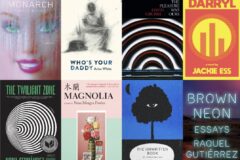Release Date: September 24, 2015
Label: 300 Entertainment
Save for deepening the entrenchment of kaleidoscopic, Atlanta-schooled synth work as rap production’s de rigueur modality, Fetty Wap’s hospitable takeover of the charts over the last 12 months has mostly proven what the rap Internet has known for some time: that radio’s ready to get a little weird. There was a bit of a teaser last year when a rapper with a Morrissey-ian haircut and outlook on life wrote a song about working the weekend shift and rode a cresting OVO wave to unavoidable omnipresence.
And somehow a kid from Paterson, New Jersey with a demeanor more casually shrugging than any of his forebears (and with yawning compositions as strange as anything they’ve done, those “yahhh”s in “Trap Queen” are not of this earth) managed to accomplish just that and simultaneously land three collections of rasps and gasps into Billboard’s top eleven simultaneously. It’s a feat that hadn’t been achieved since Lennon/McCartney. #FettyWapIsBetterThanTheBeatles? Well, not exactly; it’s hard to compare the streaming landscape to mountains of 7″ records sold, but there’s a pretty good chance your mom’s heard a Fetty Wap song, or at least a questionable viral cover of one. So the inescapability of “Trap Queen” relative to its trenchant absurdity is a feat in its own right. It’s something like if “I’m Only Sleeping” was the first big Beatles hit, and then they followed with “Tomorrow Never Knows” and “I Am the Walrus” to near equal acclaim.
So the question for his self-titled debut becomes: How the f–k do you follow that? If your brand of aw-shucks absurdity is connecting on a scale that even Drake (who gave the “Electric Counterpoint” stylings of “My Way” a bump with a remix earlier this summer) has yet to really achieve, what do you do? It isn’t until Fetty Wap‘s penultimate track, “Rock My Chain,” that he offers an explicit answer; he’s still “riding in [his] own lane.” This record is where pedal meets metal, and oops, someone cut the brake lines.
Luckily there’s a trusty driver behind the wheel. Even if he’s not exactly sure why “Trap Queen” (and “My Way”… and “679”… and “Again”) have connected the way they have, he shows the consistency to scatter those songs throughout Fetty Wap‘s 17 tracks and to mostly stick to the limited formula that made them hit as hard as they did on the rest of the record. There are no big-name guest spots to distract — he even refuses to include the Drake rendition of “My Way” — nor are there big-name producers involved, though surely he could’ve corralled actual Atlanta godheads (like Mike WiLL Made-It, Metro Boomin, and Sonny Digital). It reads like a conscious consideration, to quiet down the backseat drivers and keep his hands at 10 and 2, only tightening his grip when he hits potholes.
The result is something like an auteurist take on radio-rap structures, something like what happens when Jim Jarmusch makes a Western — the hallmarks are there, but everything’s just a hair off. The record’s heavier moments indicate that he’d be able to achieve something a little more straightforward if he tried, but he uses his slurry, garbled vocals to lend a little uncanny valley to the proceedings. There are eight different producers credited here, but the lead Remy Boy’s command of his voice is strong enough to unite all of these disparate musical ideas. He’s able to use whoops and Auto-Tuned elisions to tie together Luger-esque string stabs on “Trap Luv” and horror-movie piano plinks on “Boomin,” as if they weren’t from entirely different musical universes.
Even for these sweetly crooned moments (like the “I’m so damn glad you’re mine” refrain on the warped ballad “D.A.M.”), Fetty’s intersecting lines are tossed about like strands of tinsel. The tangle of them is the allure. He performs this trick over and over throughout, and even at the record’s rockiest moments — like the sputtering stops and starts of “Trap Luv” — he’s able to convey an experimentalism that remains endearing and engaging even over the hour-plus run time. If he never scores another streak of four simultaneous top-ten hits, Fetty Wap still feels like a feat, if only because it avoids the star-studded bloat that defines so many major-label rap debuts instead of letting the artist develop an identity at their own pace. Staying in his lane has won him multiple hits before this even dropped; why should he stray?





